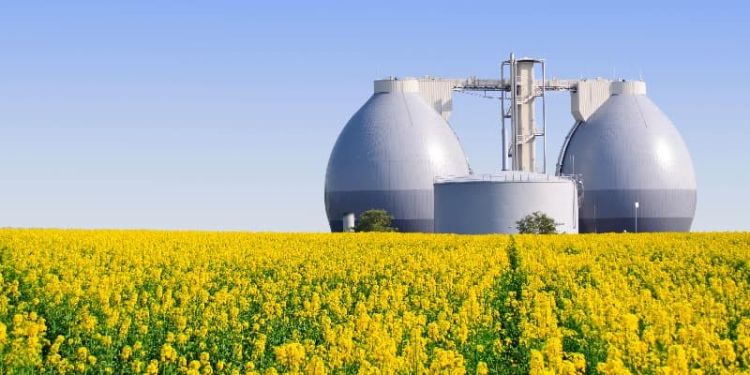Clean combustion
Overview

The environmental challenges of climate change and air quality place ever increasing demands on combustion technologies. Driven by recent reports from the Intergovernmental Panel on Climate Change we are aiming for a zero carbon UK economy by 2050. Rapid innovations are therefore needed to develop carbon neutral processes for use in our energy, heat, industrial and transportation sectors. As a result, Clean Combustion is currently a thriving and highly dynamic area. The group at Leeds is developing innovative technologies for the formulation and utilisation of alternative fuels and carbon capture within combustion processes that can address future challenges in energy efficiency, environmental impacts and safety.
We have a core interest in the use of renewable fuels such as biomass, hydrogen and liquid biofuels. Our research addresses challenges in terms of technology developments to enhance performance, sustainability of supply, pollution mitigation and to improve the safety of fuel transport, storage and utilisation.
We develop innovations by investigating the fundamentals of combustion through combined experimental and computer simulation approaches involving chemical kinetics, ignition and flame processes and the combustion of solid biomass fuel particles. This feeds into the design of practical devices, safety procedures and fuel blending strategies. We also study heterogeneous processes including catalysis and sorption processes for pollutants such as CO2. We support the development of simulation codes for multiphase turbulent flows, interfacial transfer, and the kinetics of alternative fuels and their blends.
Research highlights and partnerships:
We have a strong research programme in Bioenergy which houses an EPSRC Doctoral Training Centre, training 50 PhD graduates to tackle challenges concerning performance, cost effectiveness, sustainability, food security and biodiversity.
- We are involved in a number of BEIS funded projects on the use of hydrogen combustion as a low carbon alternative fuel for the provision of domestic and industrial heat.
- We perform interdisciplinary, multi-scale research into alternative fuel developments for the transport sector including combustion kinetics, engine performance, fuel blending strategies and real world emissions.
- We bring both expertise and unique facilities to enable the investigation of fundamental and practical issues relating to both fire and explosion hazards.
- We are working with a number of international partners in the area of combustion in global challenges research on the development of clean, low carbon processes for utilising waste and other bio-derived feedstocks as sources of fuels/energy, including via the use of hybrid micro-grids.
- We conduct a broad range of research in high temperature CO2 separation technologies from combustion processes including reforming, chemical looping, CO2 sorption, and the use of activated carbon.
We work with a wide range of industrial research partners: Shell, Drax, Alstom, EDF Energy, EPRI (USA), Advanced Fuel Research (USA), Arigna Fuels (Ireland) , DNV GL , Ardent Ltd , Ansys CFX, Aramco, 4-rail Services Ltd, Northern, United Biscuits Distribution Centre, Olleco Ltd, Infineum UK Ltd, Renewable Fuel Technologies UK Ltd , BEIS, Birmingham Burners, Clean Burner Systems, Focal Point Fires, Legend Fires, Johnson Matthey Plc, Twigg Scientific and Technical Ltd, MEL chemicals, Saffil (UNIFRAX), Tyrolysis Co, Northern Gas Networks, Northumbrian Water.
Facilities
We have a wide range of specialist facilities:
- Engine dynamometer facility equipped with 100kW Euro V diesel engine; online emissions sampling.
- Instrumented hybrid on road test vehicle.
- Hydrogen combustion research lab.
- Portable pollutant monitoring equipment.
- Instrumented wood burning stove for emissions investigation.
- World-class analytical laboratories for fuel and particulate analysis including ISO standard test methods, STA-MS-FTIR and py-GC-MS.
- A wide range of pollutant monitoring equipment including particle size distributions via DMS500, SMPS, ELPI.
- In situ monitoring with X-ray methods in collaboration with the Diamond facilities – spectroscopy, scattering, 2D/3D imaging, tomography.
- Thermal carbonisation/activation rigs.
- Gas sorption and controlled/variable atmosphere TGA rigs for studying sorbents.
- The LEMAS Electron Microscopy and Spectroscopy Centre.
- Wide range of both non-commercial and commercially linked CFD codes for turbulent and multi-phase combustion simulations including RANS, LES, DNS, multi-phase flows.
- A range of fire safety testing equipment including: ventilation controlled compartment fire facilities, cone calorimeter, Purser furnace for measurement of toxic yields from fires, 1 m3 fire resistance furnace, Hartmann tube (explosions).
Further information
View all members of our research group, our recent rojects and publications.
PhD projects
We have opportunities for prospective postgraduate researchers. Find out more.
Contact us
If you would like to discuss an area of research in more detail, please contact Professor Alison Tomlin.

